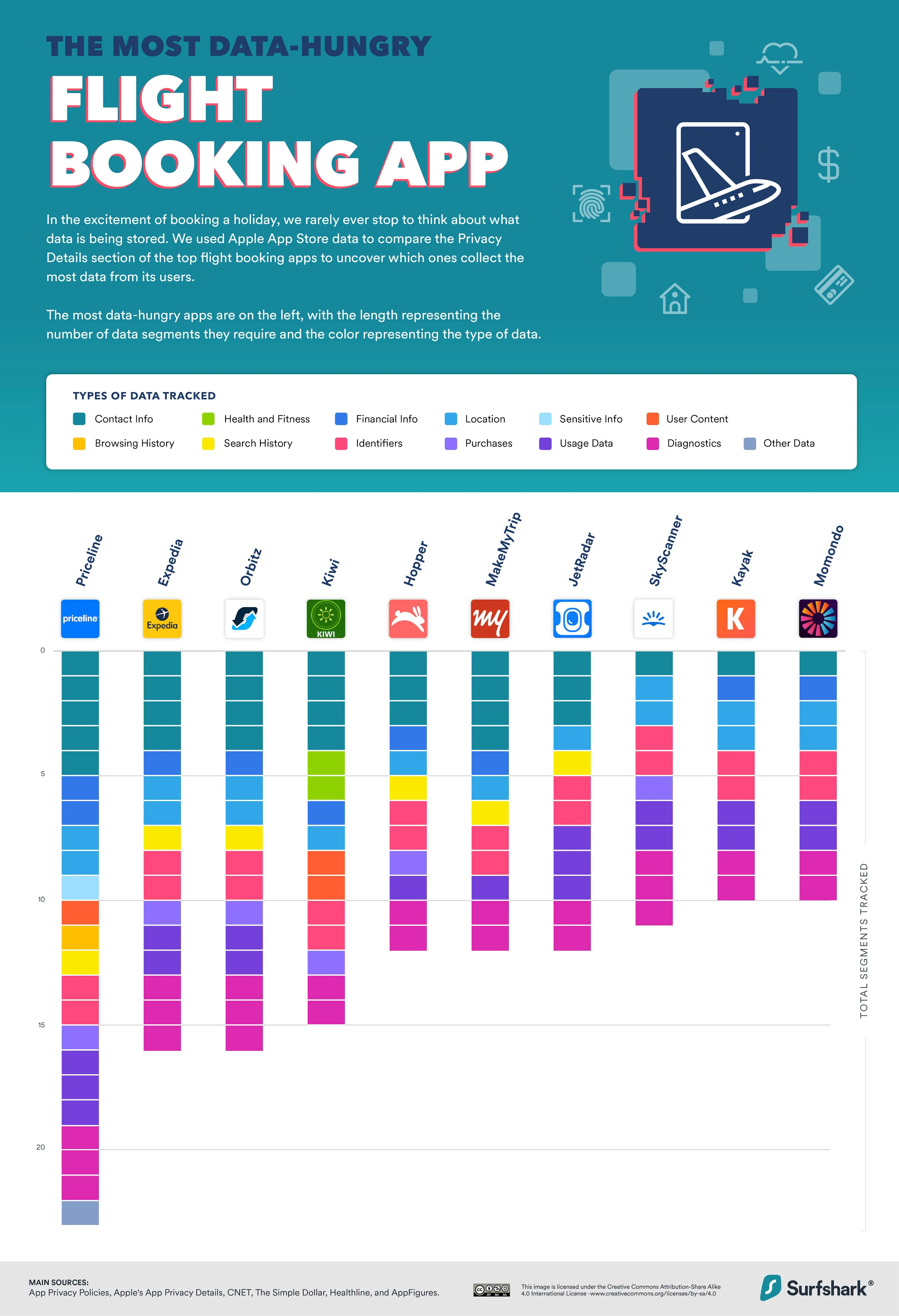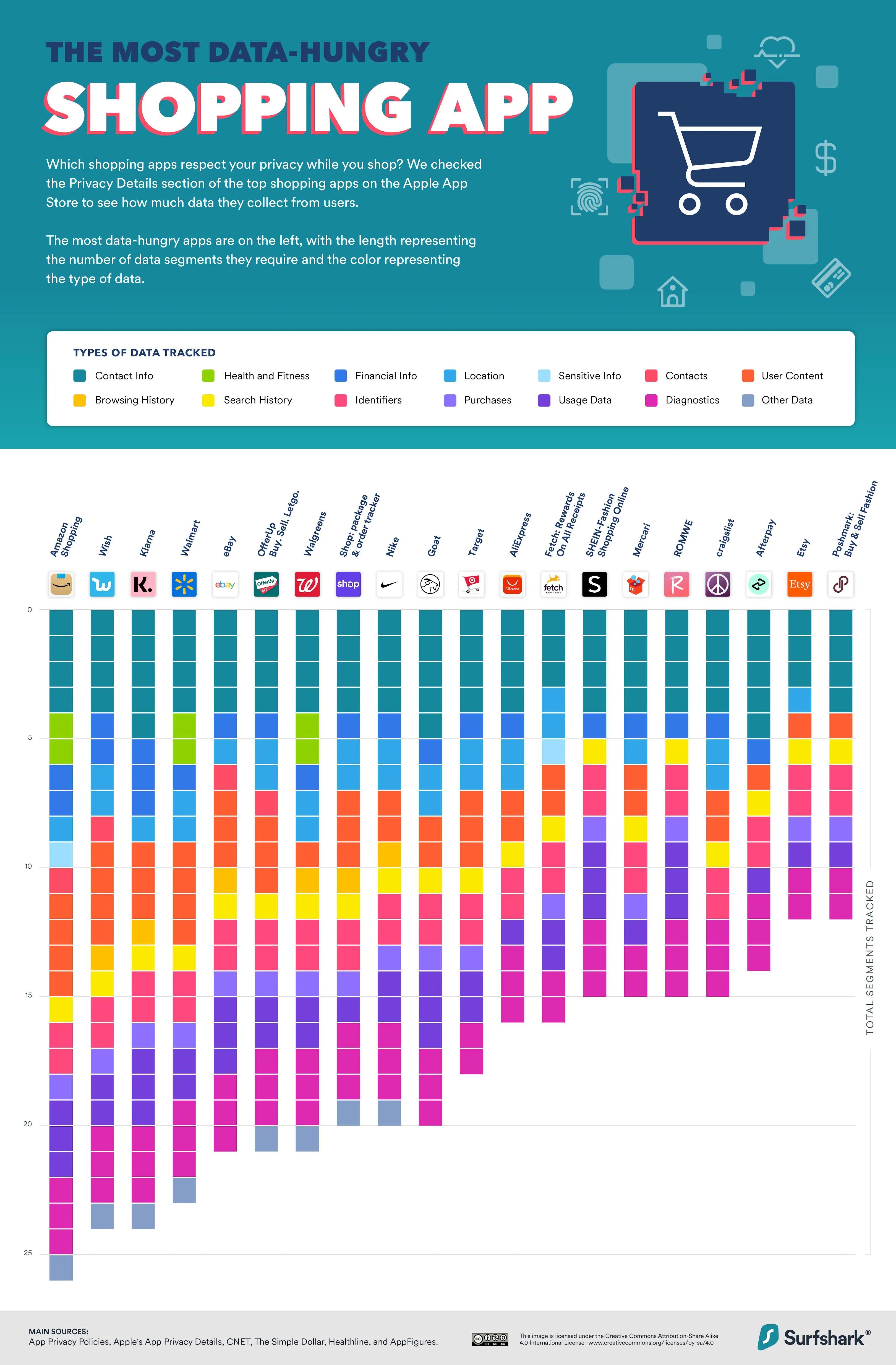As per pCloud’s research, food delivery and social media apps share the most personal data with third-party advertisers. And around 80% of people aren’t comfortable with their data being collected and shared without their consent. Therefore, you need to be on the lookout for alternatives to such apps.
Surfshark analyzed the data-collection operations of 200 apps to discover which services are guilty of retrieving and selling the most data of its consumers and which ones aren’t. To no one’s surprise, it was found out that the most popular apps tend to be the biggest collectors of personal data.
Speaking about social media, Facebook, Instagram, and Messenger harvest all 32 points of personal data flagged by the App Store. Cisco Webex Meetings and Dust are viable alternatives for communication-related purposes; Moreover, these apps do not collect any data. Also, for safeguarding your privacy, you can opt for the Clubhouse social media app.
If you are simply browsing the web, checking your emails, or watching videos, it’s time to ditch the services affiliated with Google. Chrome, Gmail, and YouTube fetch 13, 19, and 24 points of data. Suitable alternatives include Brave or Firefox Focus (browsing), Spike (emails), and Popcornflix or Kanopy (video streaming).
Also, did you know that even your go-to financial apps collect heaps of personal data? Yes, it’s true. PayPal alone is responsible for reaping 26 segments of data. MoneyGram, on the other hand, collects only 8. Where Coinbase racks up a whopping 18 data points, Crypto Pro only harvests personal identifiers. Also, Mint takes in 21 points while Mvelopes doesn’t collect any data, to begin with.
Shedding light on your favorite food delivery apps, Caviar and DoorDash have little to no regard for your privacy since both of these apps collect 24 points. On the other hand, Postmates and ChowNow only rake in 13. As for shopping, Amazon collects 26 points while Etsy and Poshmark harvest just 12.
To make things easier for you, Surfshark has rolled out a privacy tool that allows you to look up apps that collect the most (and least) data. This information can help you opt for services that focus on privacy.
 Read next: Survey Reveals Majority of Users Don’t Want to Share Personal Data
Read next: Survey Reveals Majority of Users Don’t Want to Share Personal Data
Surfshark analyzed the data-collection operations of 200 apps to discover which services are guilty of retrieving and selling the most data of its consumers and which ones aren’t. To no one’s surprise, it was found out that the most popular apps tend to be the biggest collectors of personal data.
Speaking about social media, Facebook, Instagram, and Messenger harvest all 32 points of personal data flagged by the App Store. Cisco Webex Meetings and Dust are viable alternatives for communication-related purposes; Moreover, these apps do not collect any data. Also, for safeguarding your privacy, you can opt for the Clubhouse social media app.
If you are simply browsing the web, checking your emails, or watching videos, it’s time to ditch the services affiliated with Google. Chrome, Gmail, and YouTube fetch 13, 19, and 24 points of data. Suitable alternatives include Brave or Firefox Focus (browsing), Spike (emails), and Popcornflix or Kanopy (video streaming).
Also, did you know that even your go-to financial apps collect heaps of personal data? Yes, it’s true. PayPal alone is responsible for reaping 26 segments of data. MoneyGram, on the other hand, collects only 8. Where Coinbase racks up a whopping 18 data points, Crypto Pro only harvests personal identifiers. Also, Mint takes in 21 points while Mvelopes doesn’t collect any data, to begin with.
Shedding light on your favorite food delivery apps, Caviar and DoorDash have little to no regard for your privacy since both of these apps collect 24 points. On the other hand, Postmates and ChowNow only rake in 13. As for shopping, Amazon collects 26 points while Etsy and Poshmark harvest just 12.
To make things easier for you, Surfshark has rolled out a privacy tool that allows you to look up apps that collect the most (and least) data. This information can help you opt for services that focus on privacy.
 Read next: Survey Reveals Majority of Users Don’t Want to Share Personal Data
Read next: Survey Reveals Majority of Users Don’t Want to Share Personal Data


















